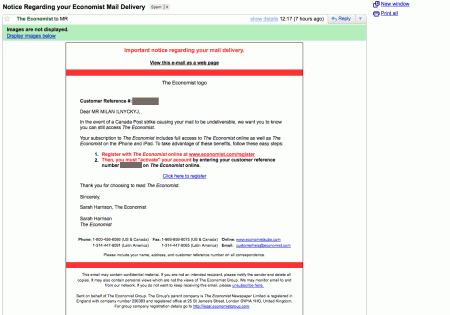Big box stores like Staples and Future Shop operate according to a kind of ruthless logic. They sell products that are manufactured in gigantic quantities, and require concessions from their makers in exchange for making them available. They expect a certain level of theft from outsiders and employees, and provide a basic level of training that improves profitability a bit without increasing costs much. They may not always do well financially (see Blockbuster), but such stores are driven by thinking that goes beyond the whims of one human being.
This is not true of smaller shops. Indeed, some such places have wildly incongruous lines of business meshed together. The owner of a newspaper and magazine shop may have an interest in U.S. Civil War miniatures, so there they are on sale in a display case. The owner of a tobacco shop may be knowledgeable about high-end audio equipment, so expensive microphones may be available for purchase alongside pipes and cigars.
I suppose something similar happens with sprawling business empires created by a single person. They start off making concrete and stick with it, even when cell phones have come to represent 90% of their profits. They see a deal in the form of a tire manufacturing company or a small bank, so they add it to the sprawling expanse of their holdings.
This approach may be a bit random and inefficient, but it is also a bit charming. It reflects the diverse quality of interests that individuals maintain and so, in that sense, this approach is more human than the robotic rationalization of stores like Staples. Charm aside, however, chains and business conglomerates that focus on doing well at their core line of business probably do better overall both for themselves and for their customers.

